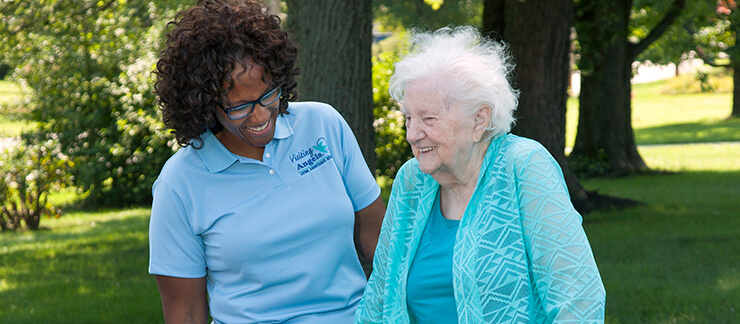
ACP Updates Guidelines for Combatting Osteoporosis
If you or a loved one are at high risk of osteoporosis, new guidelines from the American College of Physicians (ACP) could affect the way you take care of your bones. The new recommendations update guidelines from 2008 and have been endorsed by the American Academy of Family Physicians.
The new guidelines include six recommendations, based on findings from medical research performed over the past decade. The ACP has classified two of these recommendations as “strong recommendations” based on the quality and extent of the research behind them.
Those two recommendations are:
- That doctors should use two types of medications (bisphosphonates and denosumab) as the first choice for preventing hip and vertebral fractures in women with or at risk for osteoporosis.
- That doctors should avoid any kind of hormone therapy as a treatment when combatting osteoporosis in women.
Medications Recommended for Combatting Osteoporosis
The first recommendation made by the new ACP guidelines covers the type of drugs that doctors should use to treat osteoporosis in women. The guidelines recommend three types of medications classed as bisphosphonates (alendronate, risedronate, zoledronic acid) along with denosumab, a biologic agent. ACP’s updated guidelines recommend that doctors prescribe one of these four types of medication as the first choice for osteoporosis treatment in women.
The recommendation also states that physicians should prescribe generic versions of these drugs whenever possible and that patients should be counseled on the risks of not taking these medications properly.
Guidelines Advise Against Hormone Therapy
The second strong recommendation made by the ACP is that doctors should no longer recommend hormone therapy as a treatment option for osteoporosis in women. The ACP advised doctors to stop prescribing three common types of hormone therapy for osteoporosis. Those therapy types include menopausal estrogen therapy, menopausal estrogen plus progestogen therapy, and raloxifene.
This recommendation is based on new medical evidence that hormone therapy may not carry the benefits needed to make it an effective treatment. Evidence also shows that hormone therapy comes with significant risks, such as cerebrovascular accidents and venous thromboembolism. These risks outweigh the potential benefits of this treatment, according to the ACP.
Further ACP Recommendations
The ACP guidelines also included four further recommendations. These recommendations, however, were classed as “weak” recommendations. They include:
- That doctors should treat women with osteoporosis with medication-based treatment for five years, with treatment continuing after five years on a patient-by-patient basis.
- That doctors use the same medication treatment guidelines for men as they do for women.
- That doctors no longer include bone density monitoring as part of osteoporosis treatment in women.
- That doctors base osteoporosis treatment decisions for senior-aged women based on a discussion of patient preferences, fracture risk profile, benefits and harms, and costs of medications.
These recommendations all received a “weak recommendation” classification due to lack of evidence or low-quality evidence. While existing evidence suggests that these recommendations may be beneficial for treatment, the ACP advises physicians to make treatment decisions based on their best judgment.
What This Means for Seniors with Osteoporosis
The updated ACP guidelines carry significant implications for seniors with or at risk of osteoporosis. If you or a loved one suffer from osteoporosis, you may wish to speak directly with your physician about these new guidelines and whether or not they will impact your current treatment plan. Anyone currently receiving hormone therapy for osteoporosis should speak with their physician about whether or not a change in treatment would be best.
If you have an elderly loved one with osteoporosis who could benefit from non-medical home care, the caregivers at your local Visiting Angels can help.
* Note: Visiting Angels does not provide medical care. If you are concerned about your loved one’s health or risk of osteoporosis, please contact their doctor. The information contained in this article is meant as informative only and should not be considered a recommendation for care, treatment or diagnosis.


